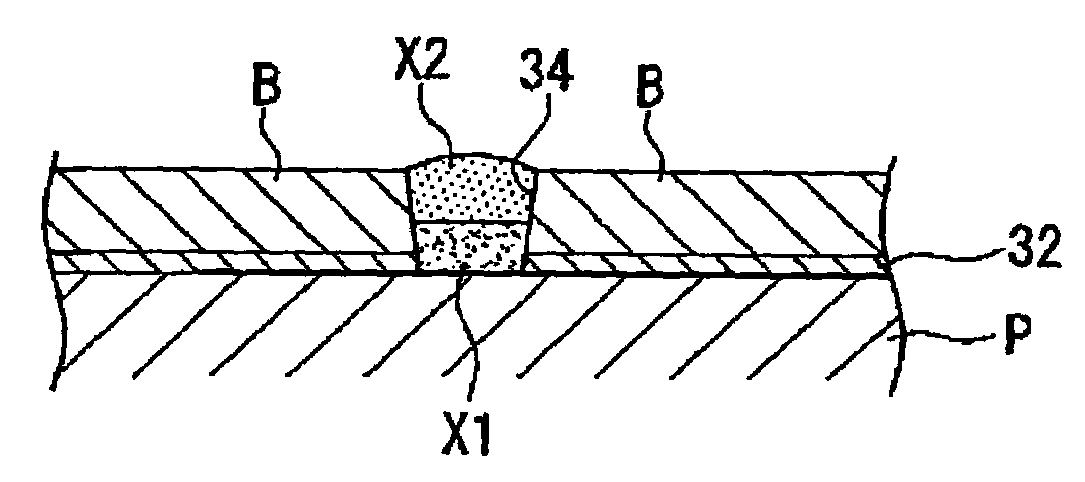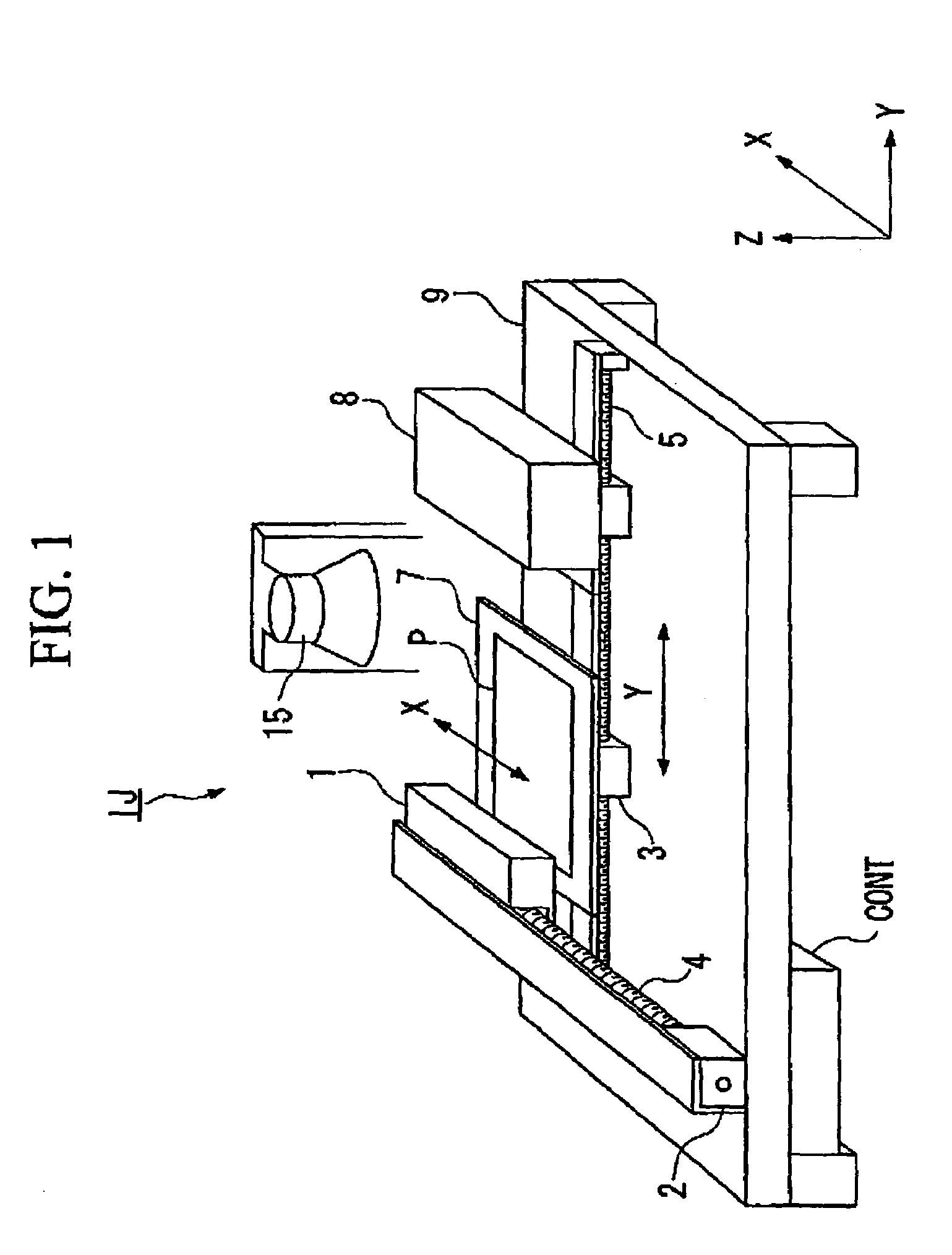Pattern and fabricating method therefor, device and fabricating method therefor, electro-optical apparatus, electronic apparatus, and method for fabricating active matrix substrate
a technology of active matrix substrate and fabrication method, which is applied in the direction of conductive pattern formation, identification means, instruments, etc., can solve the problems of peeling off from the substrate, difficulty in fully achieving the accuracy of wiring width, and possibility of cost increas
- Summary
- Abstract
- Description
- Claims
- Application Information
AI Technical Summary
Benefits of technology
Problems solved by technology
Method used
Image
Examples
first embodiment
[0067]In this embodiment, a case will be explained, in which a wiring pattern including a plurality of conductive films is formed between banks that are formed depending on the wiring pattern on a substrate, by ejecting ink (function liquid) for a wiring pattern (pattern), which contains conductive fine particles, from an ejecting nozzle of a liquid droplet ejecting head by a liquid droplet ejecting method.
[0068]This ink for a wiring pattern includes dispersion liquid, where conductive fine particles are dispersed in a dispersion medium and a solution where an organic silver compound or silver oxide nano-particles are dispersed in a solvent (dispersion liquid).
[0069]In this embodiment, fine metal particles containing any one of, for example, gold, silver, copper, iron, chrome, manganese, molybdenum, titanium, palladium, tungsten, and nickel, oxides of these, and conductive polymers or fine particles of superconductor, etc. are used as the conductive fine particles.
[0070]It is also p...
second embodiment
[0128]As a second embodiment, the wiring 33 having a structure which is different from that in the above-mentioned first embodiment will be explained with reference to FIG. 6. In addition, the second embodiment will be explained while focusing on different portions from the above-mentioned first embodiment.
[0129]In this second embodiment, as shown in FIG. 6, ink X3 for a wiring pattern, using titanium as conductive fine particles, and the ink X2 for a wiring patter using silver as conductive fine particles are stacked in the area 34 between the banks by repeatedly performing the material arrangement step and intermediate drying step, which are explained in the above-mentioned first embodiment In addition, as illustrated, the ink X3 for a wiring patter, the ink X2 for a wiring pattern, and the ink X3 for a wiring pattern are stacked in the area 34 between the banks in this order from the substrate P. That is, the ink X2 for a wiring pattern is disposed in the area 34 between the bank...
third embodiment
[0133]As a third embodiment, the wiring 33 having a structure which is different from that of the above-mentioned first and second embodiments will be explained with reference to FIG. 7. In addition, the second embodiment will be explained while focusing on different portions from the above-mentioned first embodiment.
[0134]In this third embodiment, as shown in FIG. 7, the ink X1 for a miring pattern, using chromium as conductive fine particles, and the ink X2 for a wiring pattern, using silver as conductive fine particles, are stacked in the area 34 between the banks by repeatedly performing the material arrangement step and intermediate drying step, which are explained in the above-mentioned first embodiment In addition, as illustrated, the ink X1 for a wiring pattern, the ink X2 for a wiring pattern, and the ink X1 for a wiring pattern are stacked in the area 34 between the banks in this order from the substrate P. That is, the ink X2 for a wiring pattern is disposed in the area 3...
PUM
| Property | Measurement | Unit |
|---|---|---|
| particle diameter | aaaaa | aaaaa |
| particle diameter | aaaaa | aaaaa |
| surface tension | aaaaa | aaaaa |
Abstract
Description
Claims
Application Information
 Login to View More
Login to View More - R&D
- Intellectual Property
- Life Sciences
- Materials
- Tech Scout
- Unparalleled Data Quality
- Higher Quality Content
- 60% Fewer Hallucinations
Browse by: Latest US Patents, China's latest patents, Technical Efficacy Thesaurus, Application Domain, Technology Topic, Popular Technical Reports.
© 2025 PatSnap. All rights reserved.Legal|Privacy policy|Modern Slavery Act Transparency Statement|Sitemap|About US| Contact US: help@patsnap.com



